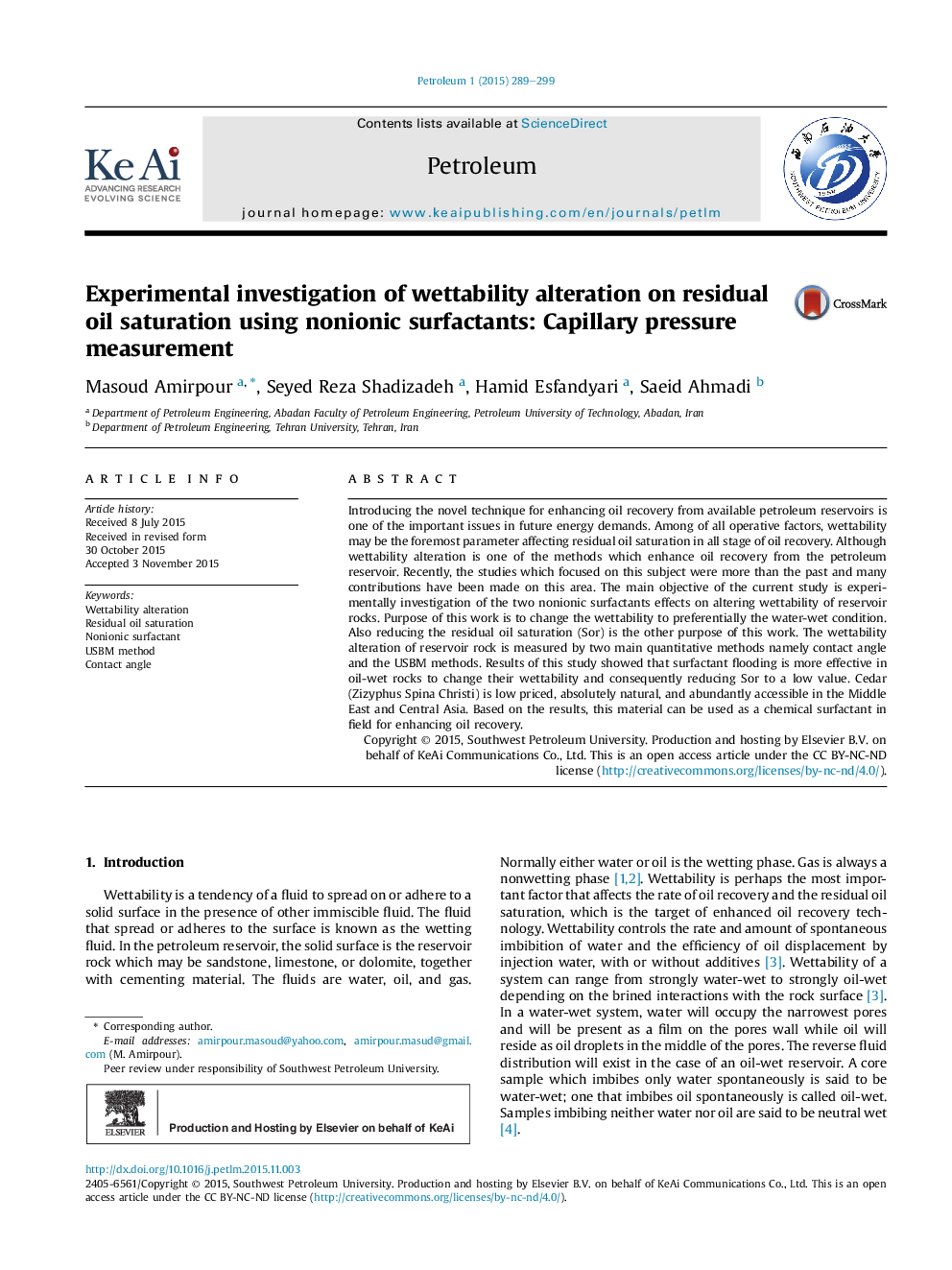| Article ID | Journal | Published Year | Pages | File Type |
|---|---|---|---|---|
| 852863 | Petroleum | 2015 | 11 Pages |
Introducing the novel technique for enhancing oil recovery from available petroleum reservoirs is one of the important issues in future energy demands. Among of all operative factors, wettability may be the foremost parameter affecting residual oil saturation in all stage of oil recovery. Although wettability alteration is one of the methods which enhance oil recovery from the petroleum reservoir. Recently, the studies which focused on this subject were more than the past and many contributions have been made on this area. The main objective of the current study is experimentally investigation of the two nonionic surfactants effects on altering wettability of reservoir rocks. Purpose of this work is to change the wettability to preferentially the water-wet condition. Also reducing the residual oil saturation (Sor) is the other purpose of this work. The wettability alteration of reservoir rock is measured by two main quantitative methods namely contact angle and the USBM methods. Results of this study showed that surfactant flooding is more effective in oil-wet rocks to change their wettability and consequently reducing Sor to a low value. Cedar (Zizyphus Spina Christi) is low priced, absolutely natural, and abundantly accessible in the Middle East and Central Asia. Based on the results, this material can be used as a chemical surfactant in field for enhancing oil recovery.
